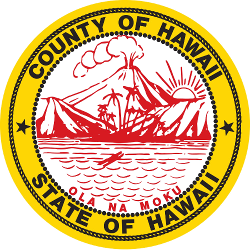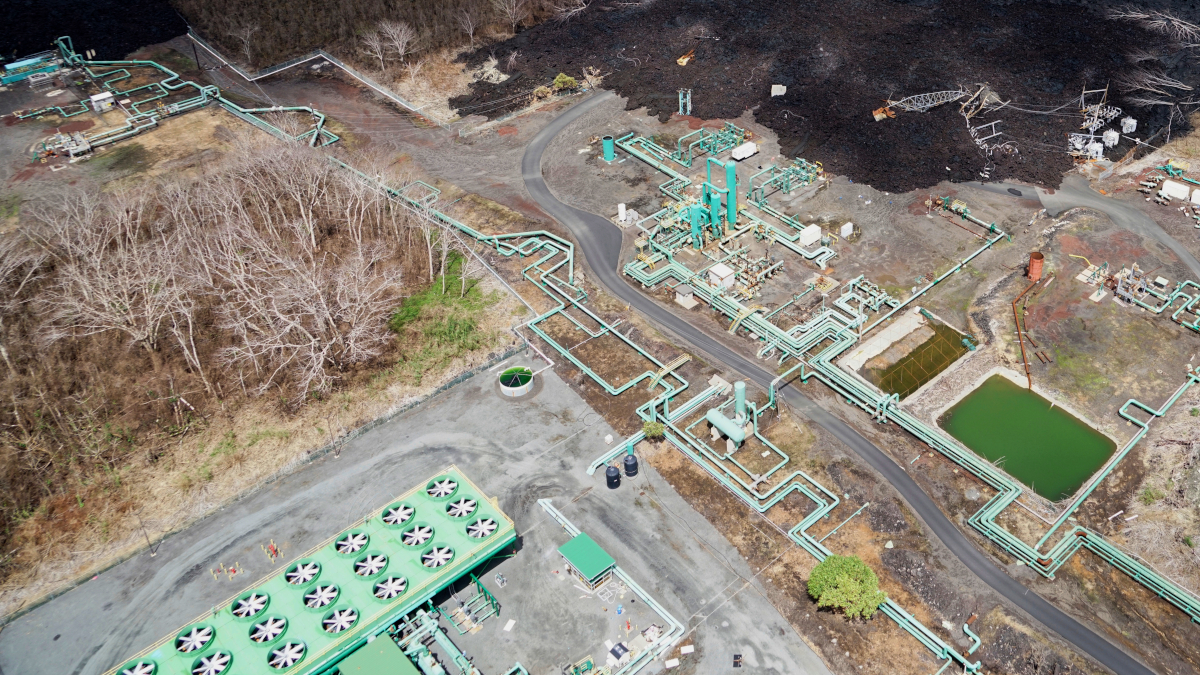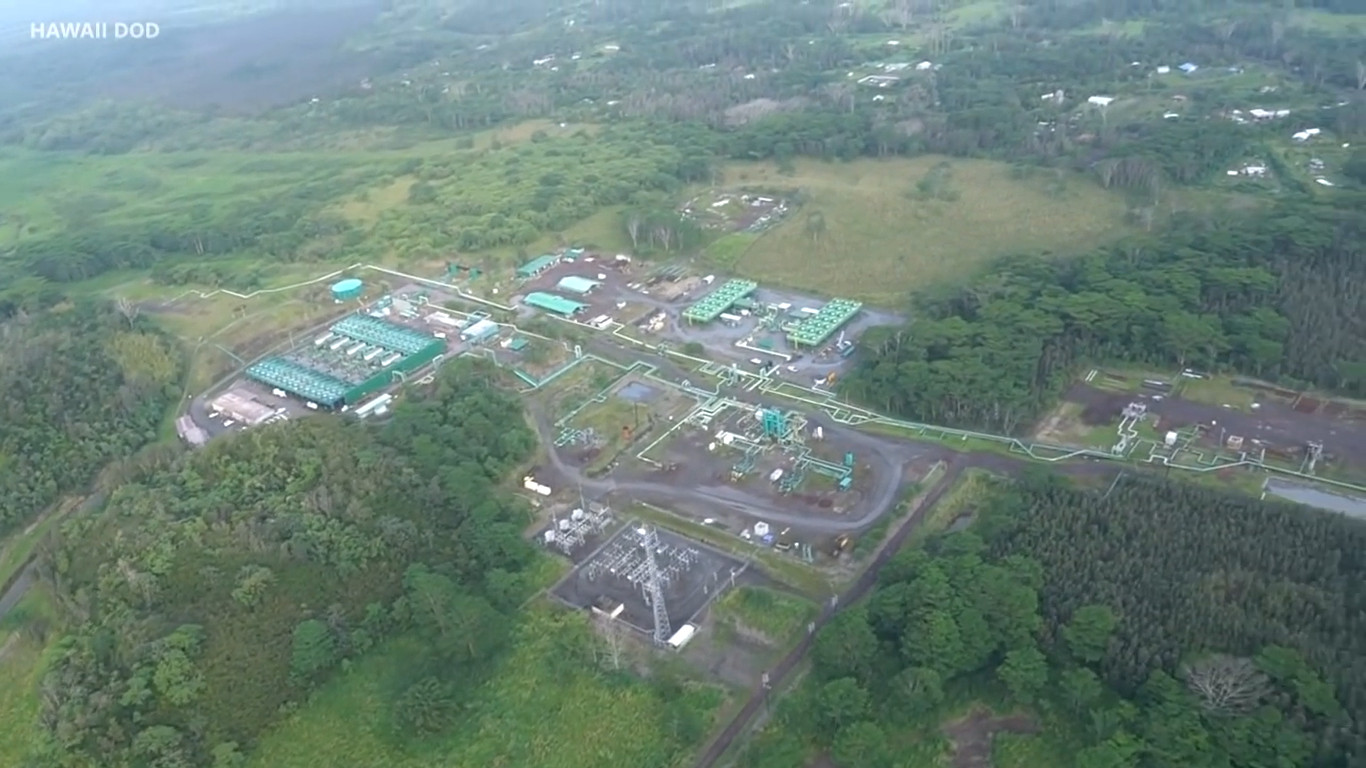(BIVN) – Funding to conduct a study on the potential effects that geothermal energy production may have on potable water sources in Puna has been advanced by a Hawaiʻi County Council committee.
Resolution 443-24, authorizing the Hawaiʻi County Mayor to enter into an agreement with the U.S. Geological Survey for a water quality study of the lower Puna region, was given a positive recommendation during a Finance Committee meeting in Hilo on Tuesday. The resolution was introduced by Puna councilwoman Ashley Kierkiewicz.
Paul Kuykendall, a Pohoiki Road farmer and co-founder of the Waihu O Puna Makai Watershed Coalition, testified in support of the measure.
“We don’t have rivers in lower Puna, other than rivers of lava, but we have a fresh water lens that sits on top of seawater just under the surface of the ground,” wrote Kuykendall. “This freshwater lens, which sits just below very porous rock, supplies water for our homes and farms through private wells and eventually flows to the shore, where it fills ponds and flows into the near-shore ocean environment. This freshwater and the nutrients it carries feeds the endemic opae ‘ula shrimp that live in ponds and fish that live in the near-shore reefs. When geothermal steam or brine are released at or near the surface mauka of lower Puna either intentionally or accidentally , the heavy metals and other contaminants seep into the ground and flow directly into our freshwater lens, negatively affecting people, plants, animals and fish.”
Kuykendall refferred to the County-commissioned Adler Report, produced in 2013, which recommended that the USGS study whether the wells, ponds and the watershed in lower Puna showed any signs of geothermal contamination.
“In 2015, that study was conducted by USGS,” Kuykendall wrote, “but did not provide sufficient evidence to unequivocally indicate or rule out adverse effects from geothermal energy production. Unfortunately, it was unable to fulfill some of its objectives such as testing water wells down-gradient from PGV and testing off-shore springs. The study recommended that future studies ‘focus on the hot groundwater wells,… and on offshore vents of warm water, using underwater sampling techniques as necessary’.”
Kuykendall added that in December 2020, the Waihu O Puna Watershed Coalition wrote a letter to Hawaiʻi County Mayor Mitch Roth requesting a follow up study. “Since then, we have been working with the community and Ashley to develop a more comprehensive study, which will include additional testing sites and additional tests for contaminants,” Kuykendall said.
The full language of the resolution is printed below:
 Hawaiʻi County Council
Hawaiʻi County Council Resolution 443-24
RESOLUTION AUTHORIZING THE MAYOR TO ENTER INTO AN AGREEMENT WITH THE UNITED STATES GEOLOGICAL SURVEY FOR A WATER QUALITY STUDY OF THE LOWER PUNA REGION.
WHEREAS, the Planning Department wishes to enter into an agreement with the United States Geological Survey (“USGS”); and
WHEREAS, the agreement is to provide $428,000 to the USGS for the purpose of conducting a study of groundwater samples from the Lower Puna region; and
WHEREAS, the Geothermal Public Health Assessment, issued in September 2013, recommended robust, scientific study of the effects of geothermal energy production on drinking water and the near-ocean environment, and further recommended that the USGS undertake such work; and
WHEREAS, subsequent testing by the USGS in 2015 and 2020 of samples from deep geothermal wells, public-supply wells, and coastal springs did not provide sufficient evidence to unequivocally indicate adverse effects from geothermal energy production and related activities; and
WHEREAS, further and continuous monitoring and sampling of groundwater is necessary to facilitate fact-based and proactive stewardship of Hawaiʻi Island’s precious water resources, to address ongoing environmental and health concerns or uncertainties related to geothermal energy production, to enable meaningful comparisons of relevant data across various timespans and locations, and to build upon the existing record of publicly accessible scientific information on this topic; and
WHEREAS, the proposed study involves two field collections from six to eight sites in Lower Puna, with a six-month interval between collections, laboratory testing of water samples, and subsequent analysis of results; and
WHEREAS, as part of the study, community members will be invited to accompany USGS field teams for the sample collection to foster observational learning, build local capacity in scientific processes, and ensure transparency, credibility, and community trust in the study’s methodologies; and
WHEREAS, the results of this study will be published online and compared to historical data from previous sampling efforts in an interpretive report to be presented in a stakeholder and community meeting; and
WHEREAS, this study will help inform plans for regular water quality monitoring in future years; and
WHEREAS, under chapter 2, article 36, section 2-181(5), allowable expenditures of the Geothermal Relocation and Community Benefits Fund for public purposes include, but are not limited to, road improvements, water infrastructure, land acquisition, parks and recreational facility needs, civil defense, and mass transit improvements in Lower Puna; and
WHEREAS, Hawaiʻi Revised Statutes, section 46-7, requires the consent of the Council for County departments to enter into agreements with the federal government or any other public body or bodies respecting action to be taken pursuant to any of the powers granted to it by law and furnish, expend, and receive any funds or other assistance in connection with projects being or to be undertaken pursuant to the powers; now, therefore,
BE IT RESOLVED BY THE COUNCIL OF THE COUNTY OF HAWAIʻI that, in accordance with Hawaiʻi Revised Statutes, section 46-7, this body does hereby consent to and duly authorize the Mayor of the County of Hawaiʻi to execute, on behalf of the County, an agreement and related documents with the United States Geological Survey for services as described hereinabove.
BE IT FURTHER RESOLVED that monies from the Geothermal Relocation and Community Benefits Fund are authorized to be expended by the Planning Department for the purposes described hereinabove.
BE IT FINALLY RESOLVED that the County Clerk shall forward a copy of this resolution to the Honorable Mitchell D. Roth, Mayor of the County of Hawaiʻi; Diane Nakagawa, Director of Finance; Zendo Kern, Planning Director; and Stephen J. Zabniser, Deputy Director of the Pacific Islands Water Science Center, United States Geological Survey.



by Big Island Video News10:43 am
on at
STORY SUMMARY
PUNA, Hawaiʻi - A previous study in 2015 "did not provide sufficient evidence to unequivocally indicate adverse effects from geothermal energy production" in Puna, a resolution states.